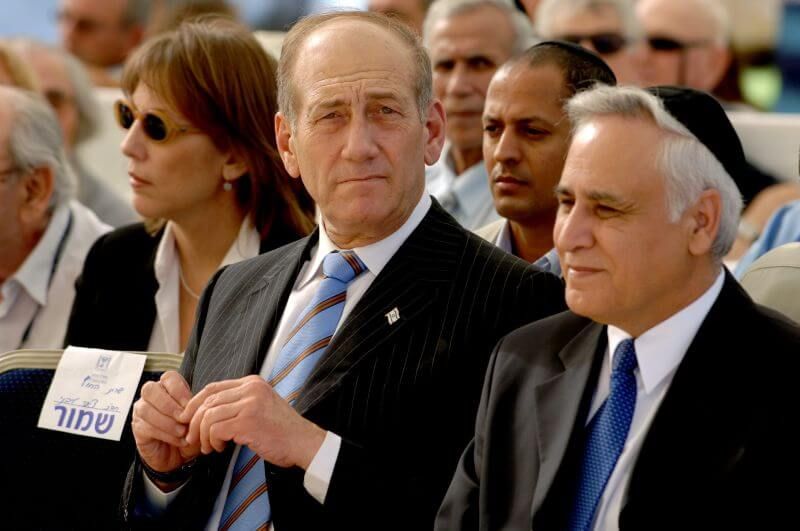Those who follow Israeli news closely will have noticed the ongoing protests involving Prime Minister Benjamin Netanyahu’s trial, the new unity government and the rule of law.
The political ruckus surrounding Netanyahu’s indictment on charges of bribery, corruption and breach of trust has been brewing for years. Popular on the right, vilified on the left, Netanyahu has for decades been the subject of intensive scrutiny.
Protesters generally aligned with the left-wing have been demonstrating outside the Knesset and the Attorney General’s house, claiming Israeli democracy is being eroded by a prime minister serving while under indictment. Counter-protesters generally aligned with the right-wing have also been demonstrating at the same time, claiming Israeli democracy is being threatened by trying to force out an elected prime minister who is innocent until proven guilty.
No doubt, Israel’s critics will spin the trial as an indication that Israeli democracy holds no luster.
With all the accusations and counter-accusations, it’s worth our while to step back and see how to cut through the noise and check what is going on with democracy and the rule of law.
After a prolonged police investigation, Netanyahu was charged in November 2019 with fraud, bribery and breach of trust. Netanyahu has consistently and vehemently denied the charges, claiming a witch-hunt against him.
Related reading: The Charges Against Benjamin Netanyahu Explained
Join the fight for Israel’s fair coverage in the news
Refereeing the Rule of Law
After three consecutive elections ended with inconclusive results and facing a coronavirus-induced national health and economic crisis, Netanyahu and opposition Blue and White leader Benny Gantz agreed to form a national unity government.
However, in the months of political uncertainty before the government was sworn into office on May 17, 2020, there were attempts by opposition parties and civil society groups in the Knesset and in the courts to prevent Netanyahu from serving as prime minister because of the indictments against him.
Both sides argued that the rule of law justified their claims and both sides claimed the actions of the other were endangering Israeli democracy.
Those familiar with Israeli politics know that it is not a friendly playing field. Political parties on the right, left and center all tried submitting legislation that would impinge the other side by changing the rules of the game before a unity government could take office.

With accusations and counter-accusations running rampant, the apparent crisis reached a peak with petitions to Israel’s Supreme Court from both sides. The court itself was also attacked as being too hard or too soft, or being a law unto itself.
In the end, the Supreme Court ruled unanimously that the law supports Netanyahu serving as prime minister and there was nothing illegal about the new national unity government. The court also ruled against parts of the unity agreement that resulted in them being dropped.
Rule of Law: Society’s Foundation
A fundamental basis of democracies is the concept of the rule of law. By definition this means that the law of the land is supreme and not the law as dictated by any person or party wielding a position of power.
In short, the rule of law means that all individuals, including those in power and the government itself are all subject to the exact same law. The UN goes so far as to declare that the “rule of law is fundamental to international peace and security and political stability.”
Every democracy is challenged to apply the rule of law, and Israel is no exception. Yet the rule of law goes far beyond just the Netanyahu case and involves balancing national interests and democratic values, human rights of enemies and foreigners – not just of its own citizens, the independence the Supreme Court and justice system as gatekeepers, as well as the protection of rights like freedom of speech and the ability to criticism all aspects of the democracy.
Israel has developed its rule of law over the past 72 years including legislative and judicial branches that generally accepted as being transparent, and with the courts operating independently.
Israeli Rule of Law, Warts and All
Independent outside observers including the U.S. State Department agree that in Israel the rule of law does indeed apply to those in power, yet those accused are assumed innocent until proven guilty. This is backed up by the Supreme Court, including its recent ruling that despite being under indictment, Netanyahu serving as prime minister is perfectly legal.
It may seem bizarre, but the rule of law in Israel is so powerful that there is a separate Wikipedia page entitled the “List of Israeli public officials convicted of crimes or misdemeanors.” That list ranges from senior civil servants to 16 members of parliament, a prime minister and a president. Justice does not appear to show favoritism for rank or party lines, with left wing, right wing, religious and secular all paying the price for their misdeeds.
To date, the highest ranking officials forced out of office are prime minister Ehud Olmert, who in 2014 was convicted on two counts of bribery, and president Moshe Katsav who in 2010 was convicted of rape, sexual harassment, indecent acts and obstruction of justice. Both resigned their positions to fight the charges.
The result is that Israeli society knows that those who violate the law will face investigation, indictment, trial, and if found guilty – sentencing. Moreover, the presumption of that one is innocent until proven guilty remains.

Making Sense of the Clamor
The U.S. State Department annual review of human rights in Israel is one of the more comprehensive reviews of the situation of law and order in Israel. The report is critical of areas needing improvement, but when it comes democracy and the rule of law the general left-leaning writers of the report conclude emphatically that Israel’s democracy is working.
The State Department report says elections in Israel are “considered free and fair,” the civilian government and authorities “maintained effective control over the security services” – meaning Israel is definitely not a police state, and in the case of leaders suspected of wrongdoing the application of justice is evenhanded: the government takes “steps to prosecute and punish officials who committed abuses within Israel regardless of rank or seniority.”
If Israeli democracy were indeed under attack and if the rule of law was teetering, that would definitely be cause for concern. But if democracy and the rule of law are working, then the clamor in the streets is just that – the regular and acceptable noise in any democracy when opposition legislators try to unseat the government, or concerned citizens exercise their right to protest.
As Israel’s former Ambassador to the United States, historian Michael Oren, said so succinctly:
The heckling of the president by congressmen makes headlines in America, but the jeering of Israeli prime ministers by Knesset members is too commonplace to report.
With 72 years of momentum behind it, the rule of law in Israel remains as robust and stable as in every other democracy – subject to the constant monitoring of legislators, watchdogs and the public.
Featured image: via Wikimedia Commons; Chief Justice Hayut via Wikimedia Commons;

